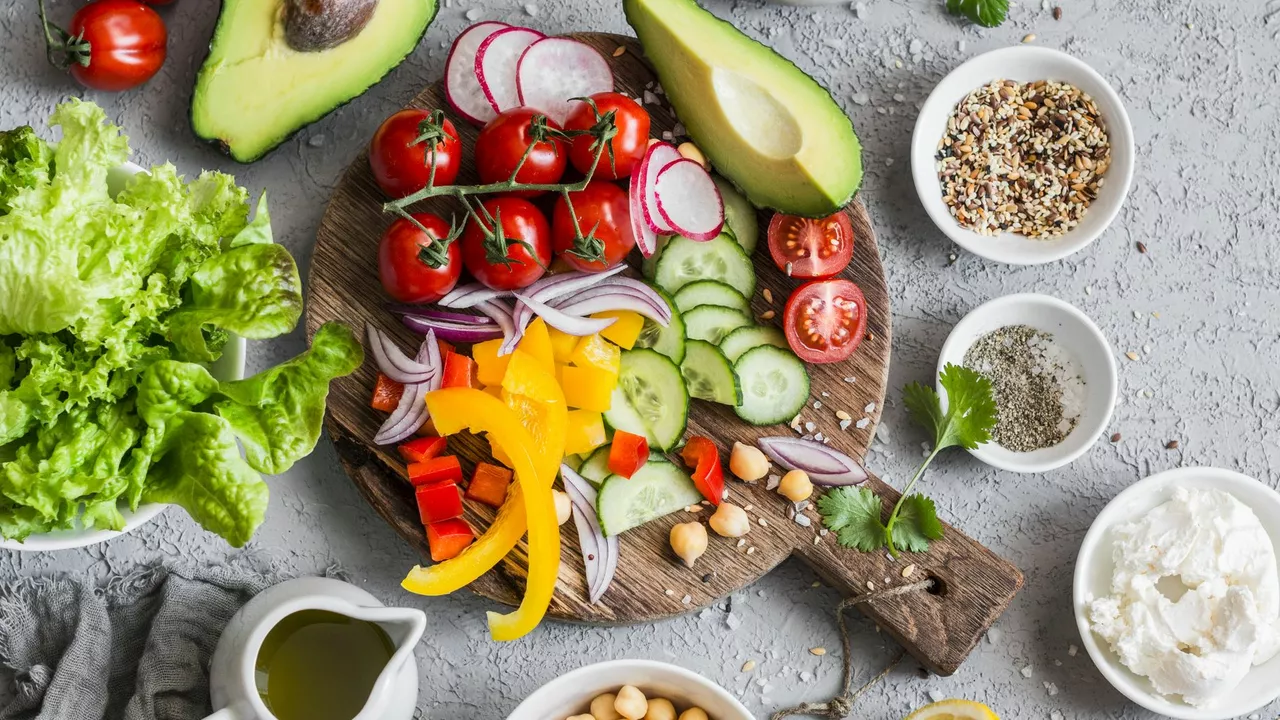Understanding Vegetarian Diet for Weight Loss
Before we delve into the world of vegetarian recipes, let's first understand what a vegetarian diet for weight loss is. A vegetarian diet typically excludes all animal products, including meat, poultry, and fish. Some variations may include dairy products, eggs, or both. A well-planned vegetarian diet can be nutritionally balanced and provide various health benefits, including weight loss. It is rich in fiber, vitamins, and minerals, and tends to be lower in calories and saturated fat, which is beneficial for weight management.
The Importance of Protein in a Vegetarian Diet
Protein plays an essential role in weight loss because it can make you feel fuller for longer and boost your metabolism. It can also help preserve muscle mass when you are losing weight. It's important to include plenty of plant-based proteins in your vegetarian diet, such as lentils, beans, tofu, tempeh, and seitan. These sources of protein are also packed with other nutrients, making them excellent choices for a balanced diet.
Vegetarian Breakfast Recipes
Starting your day with a nutritious breakfast can set the tone for the day. Some good vegetarian breakfast options include avocado toast with whole grain bread, oatmeal topped with fresh fruits and nuts, or a vegetable and tofu scramble. These breakfast recipes are not only delicious but are also packed with fiber, protein, and healthy fats that can keep you satisfied until lunch.
Lunch Ideas for Vegetarians
When it comes to lunch, a salad doesn't have to be your only option. Some tasty and filling vegetarian lunch recipes include lentil soup, chickpea salad sandwiches, and vegetable stir-fry with tofu or tempeh. These recipes are rich in protein, fiber, and a variety of vitamins and minerals that can help you stay energetic and satiated throughout the day.
Dinner Recipes for a Vegetarian Diet
Dinner is a time when you can really get creative with your vegetarian meals. Some excellent vegetarian dinner recipes for weight loss include a vegetable curry with chickpeas, stuffed bell peppers with quinoa, or a hearty lentil and vegetable stew. These meals are not only satisfying but also packed with nutrients, making them perfect for weight management.
Vegetarian Snacks and Desserts
Snacks and desserts can still be a part of your diet, even when you're trying to lose weight. Healthy vegetarian snack options include hummus with whole-grain crackers, fresh fruits, yogurt with nuts and seeds, or a smoothie made with spinach, banana, and almond milk. For dessert, consider a fruit salad, dark chocolate, or a homemade banana and oat cookie. These snacks and desserts are low in calories but high in nutrients, making them ideal for weight loss.
Benefits of a Vegetarian Diet for Weight Loss
Adopting a vegetarian diet can provide multiple benefits for weight loss. Firstly, vegetarian diets tend to be lower in calories and fat and higher in fiber, which can help you feel full with fewer calories. Secondly, plant-based foods are generally lower in saturated fat and cholesterol, which can benefit heart health. Lastly, a vegetarian diet can increase your intake of a wide variety of nutrients, including fiber, vitamins, and minerals.
Challenges of a Vegetarian Diet for Weight Loss
While a vegetarian diet can be excellent for weight loss, it does have its challenges. Some people may find it difficult to get enough protein, iron, vitamin B12, and omega-3 fatty acids, which are typically found in animal products. However, with careful planning and a bit of knowledge, it is possible to get these nutrients from plant-based sources.
Final Thoughts
While switching to a vegetarian diet can be beneficial for weight loss, it's essential to remember that a diet alone is not enough. Regular physical activity is crucial for weight management and overall health. Additionally, it's vital to ensure that your diet is balanced and provides all the necessary nutrients. With the right approach, a vegetarian diet can be an effective tool for weight loss.



